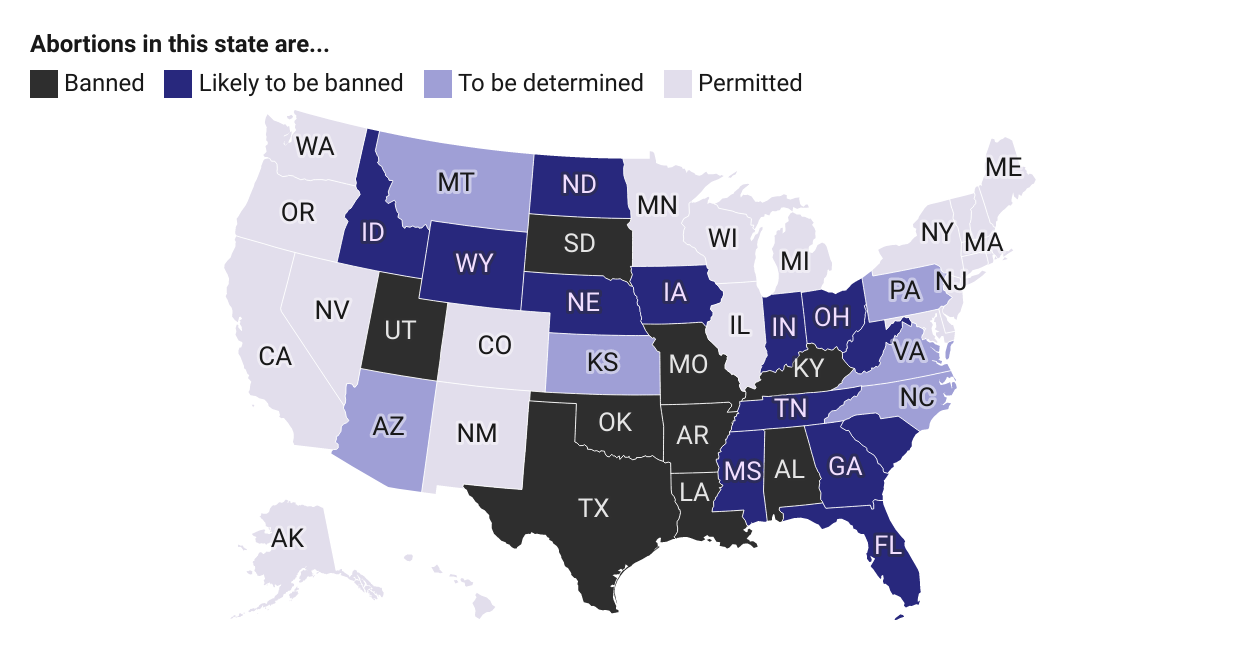
The Massachusetts House of Representatives could vote as soon as Wednesday on a reproductive care access measure responding to last week's seismic U.S. Supreme Court decision as well as legislation reforming the health insurance practice known as step therapy.
Four days after the nation's high court struck down the national right to abortion enshrined in the Roe v. Wade decision, the House rolled out a 21-page bill shielding providers of reproductive and gender-affirming care as well as their patients from out-of-state legal action.
It would declare that access to both reproductive health care and gender-affirming care -- a term covering the wide range of services treating gender dysphoria -- is a "right secured by the constitution or laws" of Massachusetts.
The bill outlines broad liability protections for both providers who offer abortions, which remain legal in Massachusetts following the Supreme Court's ruling, and related care as well as for patients who receive them.
Get New England news, weather forecasts and entertainment stories to your inbox. Sign up for NECN newsletters.
Licensing boards would be forbidden from disciplining professionals for providing or assisting reproductive care and gender-affirming care. Massachusetts police would also be barred from providing any information or assistance to federal agencies, another state's law enforcement, or private citizens seeking to take action against someone for services such as abortion legally provided in the Bay State, and the governor could not extradite someone to another state to face charges for seeking that kind of care here.
The House's proposal additionally seeks to boost access to emergency contraception, calling for the Department of Public Health to issue a statewide standing order allowing licensed pharmacists to dispense those drugs.
Senators already approved similar legal shields and emergency contraception access as part of their fiscal year 2023 state budget in late May, after the leak of a draft Supreme Court opinion overturning Roe but before the decision became official.
Sen. Cindy Friedman, an Arlington Democrat, said at the time the measure was designed to bulwark against "bounty-style provisions" on the books in Texas and Oklahoma empowering residents in those states to pursue legal action against fellow Texans and Oklahomans who travel to Massachusetts for abortions, related care or gender-affirming services or to sue the providers who offer those options.
Other sections of the House bill that do not feature in the Senate budget amendment would mandate that health insurers cover abortions and related services without imposing deductibles, co-pays or cost-sharing requirements, allow providers of reproductive and gender-affirming health care to have their home addresses made confidential, and permit abortions after 24 weeks of pregnancy in cases of a "severe" fetal anomaly in addition to already-allowed cases involving "fatal" fetal anomalies.
A spokesperson for Senate President Karen Spilka did not immediately respond to questions Tuesday about whether she supports shifting the vehicle for action to a standalone bill or agrees with areas where the House expanded the focus.
Spilka and House Speaker Ronald Mariano huddled privately Monday after scrapping their semi-regular joint meeting with Gov. Charlie Baker at the last minute.
Baker, a Republican, issued an executive order hours after the high court's decision in Dobbs v. Jackson that his office says will protect Massachusetts reproductive care providers from professional liability for services legal here and ban public agencies in the Bay State from cooperating with reproductive care-related extradition attempts originating elsewhere.
The governor -- who in 2020 vetoed a bill codifying a right to abortion in state law while citing concerns with sections dealing with abortions later in pregnancy and the age of consent for the practice -- said Monday the order would "keep providers here in Massachusetts safe and would provide relief to people from other states who came here seeking those services safe as well."
The House gave initial approval on Tuesday to the reproductive care bill and three others after the chamber's Ways and Means Committee favorably advanced the quartet.
Twenty-two representatives on the committee voted in favor of advancing the reproductive care bill, while seven reserved their rights instead of supporting or outright opposing the measure, according to a committee spokesperson, who provided aggregate totals but did not detail how each individual lawmaker voted.
Representatives have until 5 p.m. Tuesday to file amendments to the bill, which could hit the floor for debate and a vote in a formal session on Wednesday.




